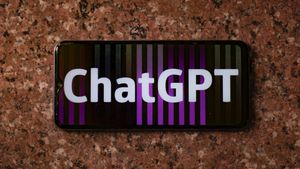JAKARTA - Howard County's Public System in Maryland, United States (US), has just filed a lawsuit against a number of social media giants. Allegedly, their platform contributed to the mental health crisis among students.
The lawsuits are aimed at Meta, Google, Snap, and ByteDance, claiming the social networks operated by these companies are addictive and harmful products.
In addition, their social media can also change the way children think and behave. Each platform is also accused of encouraging negative negative social comparisons that are unhealthy, in turn, causing body image problems and mental and physical disorders related to children.
In this case, they call the parental control feature across social media somewhat flawed, and the app also has a security loophole where they can freely promote child sexual exploitation content.
"Over the past decade, the Defendant has relentlessly pursued a growth strategy at all costs, recklessly ignoring the impact of their products on children's mental and physical health," the lawsuit said.
"In a race to corner the 'priced but untouched' market of 'tween users and teenagers', each Defendant designs product features to promote repeated and out of control by children," he added.
Launching The Verge, Saturday, June 3, the Howard County Public School System is not the only school district to file a lawsuit against Meta, Google, Snap and ByteDance.
SEE ALSO:
Meanwhile, school systems in US states, including Washington, Florida, California, Pennsylvania, New Jersey, Alabama, Tennessee and others.
In response to this, Meta's Head of Security Antigone Davis stated that it had long invested in removing controversial content.
He admitted that such problems were quite complicated, so Davis promised to continue working on developing features to prevent them, including asking parents to be able to accompany their children.
"We have invested in technology that finds and removes content related to suicide, hurts ourselves, or eating disorders before anyone reports it to us," Davis explained.
"This is a complicated matter, but we will continue to work closely with parents, experts, and regulators such as state attorney generals to develop new tools, features and policies that meet the needs of teens and their families."
Likewise with Google, which denies the allegations and insists the company has built an experience that suits children's age, even giving parents strong control. However, Snap and ByteDance have not responded to this lawsuit.
"Cooperating with child development specialists, we have built age-appropriate experiences for children and families on YouTube, and given parents strong control," said Google spokeswoman Castaneda.
The English, Chinese, Japanese, Arabic, and French versions are automatically generated by the AI. So there may still be inaccuracies in translating, please always see Indonesian as our main language. (system supported by DigitalSiber.id)


















